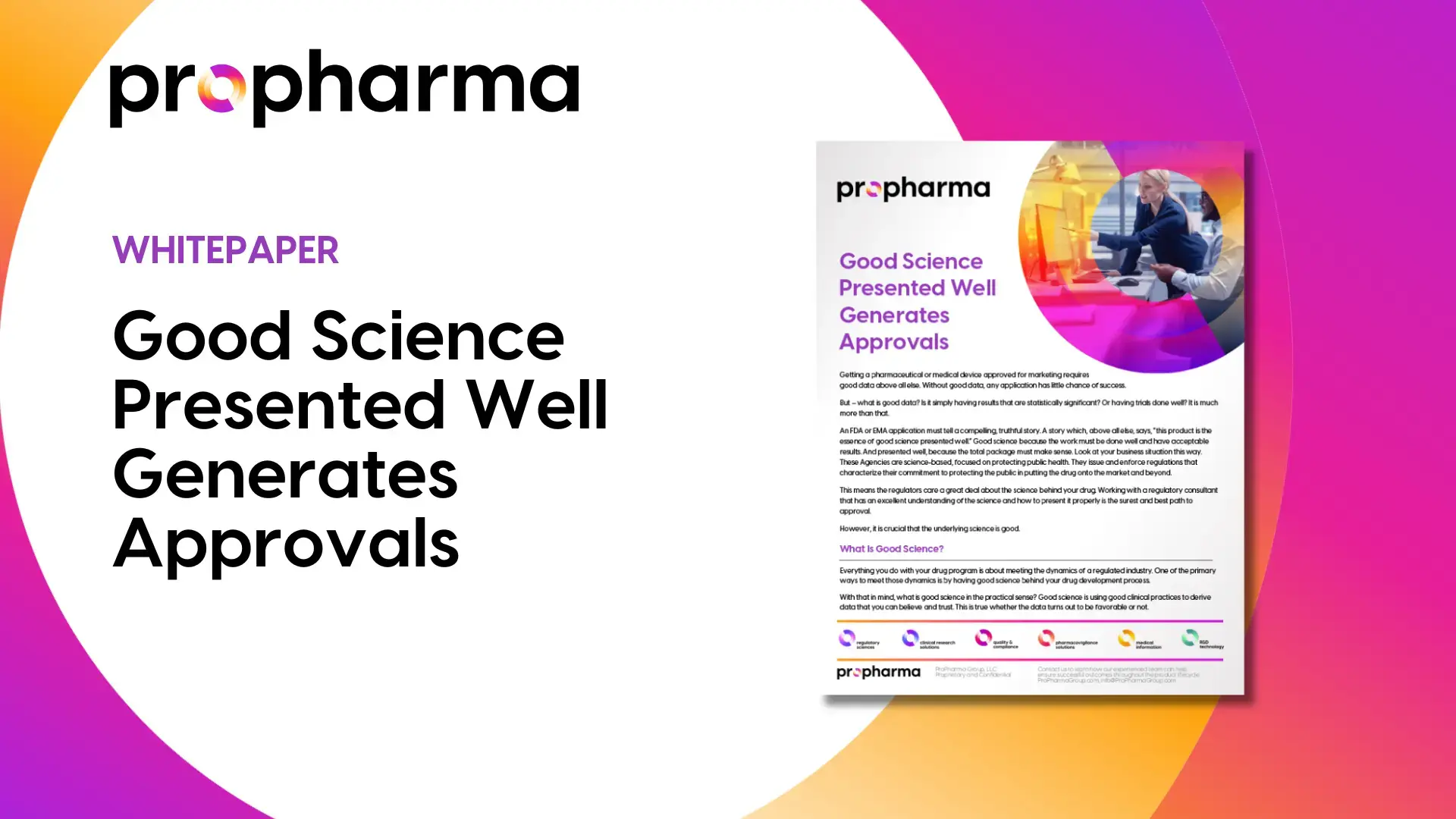Today’s patients benefit from having access to the safest, most advanced pharmaceutical systems around the world. This is because of the work done by the various regulatory bodies who govern the development and our access to life saving therapies. One of the most important functions of these regulatory agencies is to evaluate new drugs before they can be prescribed to patients. This evaluation ensures that medicines, both patented and generic, work as intended.
When dealing with the Food and Drug Administration (FDA), European Medicines Agency (EMA), or the local national agencies, it is important to remember that they are science-based and focused on the public health. They care deeply about the science behind the medicines they evaluate and are consequently committed to protecting the public from medicines that either have safety risks or do not work as intended.
Therefore, the surest and best path to success for your medicines in development is to work with a regulatory consultant that understands the science behind your medicine and how to properly present that science to the regulators.
Good Science vs. Bad Science
Companies seeking to develop a medicine for human use in the United States or Europe must first test it in both a lab and clinical setting. The company then presents to the regulators the evidence from those tests to prove the drug is safe and effective for its intended use. Then a team of physicians, statisticians, chemists, pharmacologists, and other scientists from the applicable agency reviews the Sponsor’s data.
If this independent review is positive, the medicine may be approved for prescription. Regulatory approval means that data on the drug’s effects have been reviewed and the drug is determined to provide benefits that outweigh its known and potential risks for its intended population and indication.
As a part of the review process, the US and EU agencies evaluate clinical benefit and risk information submitted by the company, considering any uncertainties that may result from imperfect or incomplete data. The agencies expect that the company will submit results from well-designed clinical trials that follow rules and procedures that fall within the parameters of good clinical practice.
Because regulatory agencies do not actually perform testing of the drug, they rely on the accuracy and reliability of the data presented to them; therefore, these data must be derived from good science.
So, what is good science? Good science is using good clinical practices to derive data that can be trusted. Having trustworthy data is paramount. This is true whether the data is favorable or unfavorable to the development of the medicine.
Bad science, on the other hand, is science that is based upon the critical failure, at some crucial point or points, to follow good clinical practice. Even though bad science has the potential of producing favorable data, that data is unreliable and should not be used to try and convince the applicable regulatory agency to approve the drug.
Good Science Presented Well Wins
Many of the risk/benefit analyses are straightforward. The FDA & EMA/local national agencies know what they need to see and hear to approve a medicine. As such, if the Sponsor does not present that information, then the drug will not be approved.
For example, as a science-led organization, the FDA and EMA/local national agencies use the best scientific and technological information available to make decisions through a deliberative process. However, sometimes the benefits and risks are uncertain or may be difficult to interpret. The applicable agency and the Sponsor may reach different conclusions after analyzing the same data. Or, there may be differences of opinion among members of the review team.
This is where the ability to present good science well becomes crucial.
You Need an Excellent Regulatory Consultant
Among the many benefits that a regulatory consultant brings to the table is their ability to help you produce good science and present the same. Consider your drug development process to be a story. It is the job of your consultant to help craft your story and then tell your story to the regulator in an honest and persuasive manner to get your drug approved.
ProPharma is that Excellent Regulatory Consultant
We are an excellent regulatory consultant because we have more than three decades of experience with helping our clients get their drugs approved around the world. Through the combination of The Weinberg Group (US), Southwood Research (EU), and former Xendo and Sofus Regulatory (Europe), ProPharma is now the leading regulatory affairs firm in the world. We do this by taking our clients’ good science and presenting it well. Our subject matter experts and team of scientists know where you need to go along the approval continuum, and they know how to get you there as efficiently and cost effectively as possible.
To learn more about the critical value of good science presented well, download our whitepaper. For additional information on how we can help you reach your next regulatory milestone using science as the driver of success, contact us today.
TAGS: Regulatory Sciences

